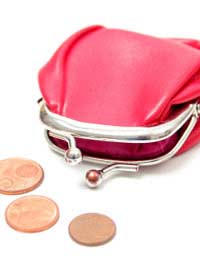Compulsive Buying

There is some debate as to whether Compulsive Buying Disorder can be classed as one of the symptoms of OCD. Some experts have suggested that it is better described as an example of an Impulse Control Disorder. The compulsion to buy can turn into an obsession, particularly as it can be closely related to hoarding. Sufferers will often buy on impulse and cannot control the urge to buy an item, even if they know that it will have severe financial complications. Once bought, the items will often be hoarded away, especially if the items bought are of no real use. As with many disorders, it can often result in depression.
Who Does Compulsive Buying Disorder Affect?
Although shopping is usually regarded as a predominantly female occupation, research conducted in America has suggested that males are just as likely to be affected by Compulsive Buying Disorder. Men and women will usually buy entirely different items on impulse. Research has also suggested that those on lower incomes are more likely to suffer from Compulsive Buying Disorder, despite not having the financial means to do so without repercussions.How Can Compulsive Buying Disorder Differ from Obsessive Compulsive Disorder?
A common characteristic of OCD symptoms is the fact that compulsive rituals do not cause pleasure. In most cases, they will cause distress, anxiety and depression in the long term. Compulsive Buying Disorder often gives sufferers a feeling of exhilaration for a short time afterwards, before they begin to regret their impulse buys. This is one of the factors that have led some experts to argue that Compulsive Buying Disorder should not be seen as a symptom of OCD. However, there are some similarities with OCD, as sufferers of both disorders are trying to minimise anxiety through their actions and behaviour.How Can Compulsive Buying Disorder be Treated?
Cognitive Behavioural Therapy can be a useful form of treatment for some sufferers. This is also believed to have a positive effect on many OCD sufferers, as it aims to re-train the mind into understanding that compulsive actions and behaviour do not need to be performed to reduce anxiety.Compulsive buying can be classed as one of the symptoms of Obsessive Compulsive Disorder (OCD), although there is debate regarding this given that impulse buying tends to produce an initial “rush” that is not usually present when OCD sufferers perform compulsive rituals. Compulsive buying is often accompanied by a hoarding obsession as impulse buys will often be hidden away so that their existence does not have to be acknowledged.
Many people who suffer from compulsive buying are unable to stop themselves from succumbing to buying on impulse, regardless of the financial implications. As it is a compulsion that sufferers feel the need to do to decrease the anxiety that occurs if they do not do this, Compulsive Buying Disorder can lead to distress and depression. There are some similarities between Compulsive Buying Disorder and OCD though, as the compulsions demonstrated in both disorders are often an attempt to repress feelings of anxiety.
- What If Your Compulsive Thoughts Are Making You Suicidal?
- Praying and Confessing Compulsions
- Quiz: Is Your Child Suffering from OCD?
- Quiz: Do You Have Pure 'O' OCD?
- Obsessive Checking Explained
- Obsessive Tidiness
- Repeatedly Performing Tasks
- Dealing With Intrusive Thoughts and Paranoia
- Common OCD Obsessions
- Being Unable to Stop Hoarding
- What To Do if OCD Leads to Self-harm
- Obsessive Cleanliness
- Avoiding Stressful Situations


Re: How to Survive a Holiday as an OCD Sufferer
I’ve had severe OCD for 49 years. Had all sorts of treatment, but with no success I would be very interested to…
Re: How Alcohol Affects OCD
CAInHI - Your Question:Scared today. I have been drinking some, and my intrusive thoughts of harming others is so potent. I HAVE to stop…
Re: How Alcohol Affects OCD
Scared today. I have been drinking some, and my intrusive thoughts of harming others is so potent. I HAVE to stop drinking. I love it, I…
Re: How Alcohol Affects OCD
gee8 - Your Question:Lately I have been thinking really weird thoughts like for example: I can see an attractive person and think they're…
Re: How Alcohol Affects OCD
Lately I have been thinking really weird thoughts like for example: I can see an attractive person and think they're attractive, and a…
Re: Relationship OCD
I am really hoping somebody would help me out here I am a 17 year old and I've been through 2 significant OCD phases before both of them were…
Re: How Alcohol Affects OCD
Hi I am convinced that I'm ocd and I'm a drinker but what I want to know is, has anyone suffering ocd got so drunk that they got on a…
Re: Relationship OCD
I thought the situation I just went through would be a perfect example to put on this site. I was recently dumped by a girl after two months of…
Re: How Alcohol Affects OCD
@AJ ! Your msg makes so much sense. I was just thinking tonight after sooo long of being addicted to alcohol that maybe i just feel…
Re: Relationship OCD
I wanted to write you cause my now ex boyfriend had ROCD. he was diagnosed with OCD when he was very young and also with an anxiety disorder. We…